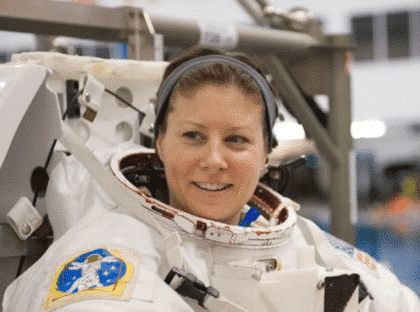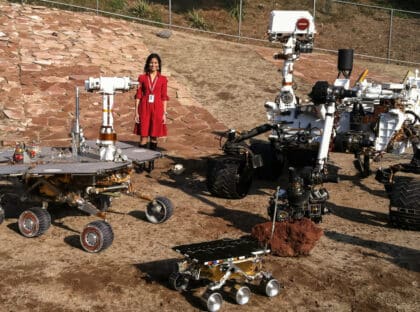
By Dr. Robert Zubrin, UnHerd, 04.01.25
In his speech to Congress last month, President Donald Trump promised to “lead humanity into space and plant the American flag on the planet Mars and even far beyond”. His claim is not serious, as Trump is far too busy wrecking the global liberal order to achieve such a splendid feat. And even if he weren’t, there’s no way we can reach Mars in the next four years. Nevertheless, it is possible that the new administration, under the eye of SpaceX CEO Elon Musk, will make human travel to Mars the main goal of NASA.
The Emperor and Darth Vader may be wrong about a lot of things, but they are not wrong about this. NASA needs a purpose, one that’s worthy of the costs and risks of human spaceflight. That goal can only be sending humans to Mars. This is so because Mars is where the science is, Mars is where the challenge is, and Mars is where the future is.
Let’s start with the science. In the beginning, the Earth and Mars were twins. Both were warm, wet, rocky planets with atmospheres dominated by carbon-dioxide — then, Earth evolved life. If the theory is correct, and life emerges naturally from chemistry whenever the conditions are right, then life should have evolved on Mars too, and on millions of other planets throughout our galaxy. If we find evidence of past or present life on Mars, it means we are not alone.
There are other reasons to explore Mars. Biotechnology is going to be one of the main engineering sciences of the 21st century and many to follow. If we find life on Mars, we will be able to discover whether the DNA-RNA information system utilised by all life on Earth is universal, or whether it is just one of many possibilities. A different system could offer revolutionary engineering possibilities, as great in comparison to DNA-RNA as silicon computers are to those based on vacuum tubes, electric relays or mechanical Babbage machines.
A humans-to-Mars programme would also inspire millions of young Americans to develop their scientific talents, generating vast amounts of intellectual capital. In the Sixties, the Apollo programme doubled the number of American science and engineering graduates, whose innovations (such as the computer revolution) have since repaid the nation the cost of the programme many times over. Like individuals, nations grow when they challenge themselves and stagnate when they do not.
To read the full commentary, please click here.


